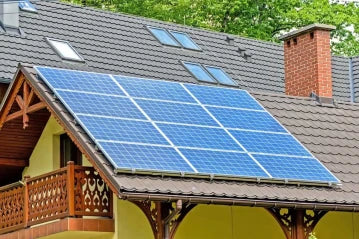
As solar energy gains popularity as a clean and sustainable power source, portable solar charge controllers have become an essential component for harnessing solar power. These devices ensure efficient charging of batteries by regulating the flow of electricity from solar panels. However, there are instances where users may encounter issues with their portable solar charge controllers. In this article, we will explore the possible reasons why your solar charge controller might not be working as expected and provide a checklist of factors to consider. Understanding these factors will enable you to troubleshoot and resolve any potential issues, ensuring a seamless experience with your solar energy system.
Solar Charge Controller not Charging Battery?
One of the primary concerns when a solar charge controller is not working is its failure to charge the battery effectively. A battery that does not receive sufficient charge from the solar panels can lead to inadequate power supply and reduced overall system efficiency.
Solar Charge Controller not Charging Battery Factors Checklist
To identify the root cause of your solar charge controller's inability to charge the battery, consider the following factors:
1. Solar Panel Charge Controller Factors
a) Direct charge protection point voltage:
The direct charge protection point voltage determines the voltage at which the solar charge controller stops charging the battery directly from the solar panels. If this voltage is set too low, the battery may not receive enough charge, resulting in insufficient power supply.
b) Equal charge control point voltage:
The equal charge control point voltage determines the voltage at which the solar charge controller transitions from direct charging to equalizing charging. If this voltage is incorrectly set, it can disrupt the charging process and impact battery performance.
c) Floating charge control point voltage:
The floating charge control point voltage defines the voltage at which the solar charge controller switches to a lower charging voltage to maintain the battery's charge without overcharging it. Incorrect settings for this voltage can lead to undercharging or overcharging, both of which can harm the battery's longevity.
d) Over-discharge protection voltage:
The over-discharge protection voltage is the voltage at which the solar charge controller disconnects the battery from the load to prevent deep discharge, which can damage the battery. If this voltage is set too high, it may cause the battery to discharge excessively.
2. Solar Panels Factors
The performance of your solar panels can impact the charging capability of your solar charge controller. Consider the following factors related to your solar panels:
a) Panel orientation and placement:
Ensure that your solar panels are correctly oriented towards the sun and placed in an area with maximum exposure to sunlight. Poor placement or shading can significantly reduce the amount of energy harvested, affecting the charging capacity of the solar charge controller.
b) Panel cleanliness:
Regularly clean your solar panels to remove dirt, dust, or debris that might hinder sunlight absorption. Dirty panels can decrease energy generation and impede the charging process.
c) Panel compatibility:
Ensure that your solar panels are compatible with your solar charge controller in terms of voltage and current ratings. Mismatched specifications may result in undercharging or overcharging, leading to suboptimal performance.
3. Battery Factors
The battery plays a vital role in the overall solar energy system. Consider the following battery-related factors:
a) Battery capacity:
Ensure that your battery has sufficient capacity to meet your energy demands. An undersized battery may not store enough energy, causing frequent discharge cycles and limited charging.
b) Battery condition:
Regularly check the condition of your battery, including its connections, electrolyte levels (if applicable), and overall health. Faulty batteries or poor connections can impede the charging process and affect system performance.
c) Battery type:
Different battery chemistries (e.g., lead-acid, lithium-ion) have different charging requirements. Ensure that your solar charge controller is compatible with the battery type you are using to ensure efficient charging.
4. Weather Factors
Environmental conditions, particularly weather, can influence the performance of your solar charge controller. Consider the following weather-related factors:
a) Sunlight intensity:
The intensity of sunlight affects the amount of energy generated by your solar panels. Cloudy or overcast conditions may reduce energy production, resulting in slower charging rates.
b) Temperature:
Extreme temperatures, both high and low, can affect battery performance and charging efficiency. Ensure that your battery and solar charge controller are designed to operate within the expected temperature range.
Conclusion
When your portable solar charge controller is not working as expected, it's essential to consider various factors that could be contributing to the issue. By examining the charge controller, solar panels, battery, and environmental conditions, you can troubleshoot and resolve any underlying problems effectively. Regular maintenance, proper settings, and ensuring compatibility among system components are key to achieving optimal performance and a long-lasting solar energy system. With a well-functioning portable solar charge controller, you can harness the power of the sun and enjoy the benefits of clean, renewable energy wherever you go.


0 comments